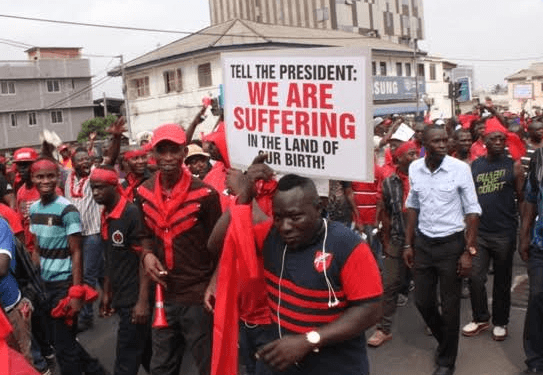On May 11, 1995, Ghana witnessed its biggest demonstration ever under democratic governance in contemporary Ghanaian history.
Ghanaians have had enough. They would rather the “government may as well, kill them immediately” hence the “Kumepreko demonstration” since they could not take any more of the harsh economic policies. Some five Ghanaians sacrificed their lives and many more were injured during the demonstration of about 100,000 people on the streets of Accra.
In the end, the government buckled under pressure from a section of Ghanaians and the tax was withdrawn and the rest, they say, is history.
Many valuable lessons were learnt. That, the government cannot impose any policies, especially taxes on the ordinary Ghanaian without first engaging the citizenry.
The VAT was reintroduced at a later date and this time it passed without the public outcry as was the case previously. And it is not as though at the time of the re-introduction of the tax, the economic conditions of Ghanaians had improved, No!
The newly packaged VAT got the buy-in of Ghanaians because the government did what was needed. The government listened and engaged the citizenry for whom it serves.
It is within this context that the recent decision to the tax on electricity consumption and the government’s subsequent withdrawal of the VAT yesterday that we want to commend the government for listening to the cries of the ordinary people on the streets. We also want to commend organised labour for their boldness and decisive action.
Some have suggested that it was needless in the first place for the government to have straddled that road because we have had the benefit of history to guide us.
That, it has to take organised labour to scream at the government before calls are made for engagement, is a failure of government machinery. For many, it seems we have not learnt anything from the past.
The fact of the matter is that the conditions under which the “Kumepreko demonstration” in 1995 was staged or the VAT was rejected by Ghanaians are very much with us today.
The economy is in distress and individual incomes have been eroded due to soaring general prices of goods and services. Many Ghanaians have become impoverished under the present economic conditions.
A World Bank report last year indicated that many more Ghanaians have moved into the poverty line on account of the current economic challenges. A very worrying statistic indeed.
We know that VAT has proven to be one of the efficient means of generating revenue- hence all governments since its introduction have had cause to increase it from 12.5 per cent from its conception to 15 to 17.5 and currently at 21 per cent
The Graphic Business acknowledges that there is a huge deficit gap which needs to be plugged in if we aim to return the economy on track. We are not oblivious to this fact.
However, the present economic conditions do not require paying one tax after the other. It can only lead to tax avoidance and evasion.
Therefore, if we are sincere on the way forward, we must engage and be open to ideas that will help the economy to generate additional revenue sources. Additionally, plugging revenue leakages in government expenditure is also another way of maximising revenue usage.
In this election year, we call on the government to avoid unpopular policies that will only motivate people to hit the streets to vent their anger and frustrations and further heighten the political atmosphere.
As Bob Nester Marley said, “a hungry man is an angry man” in the song titled “Dem Belly Full (But we are hungry)”. We must learn from history.










Discussion about this post